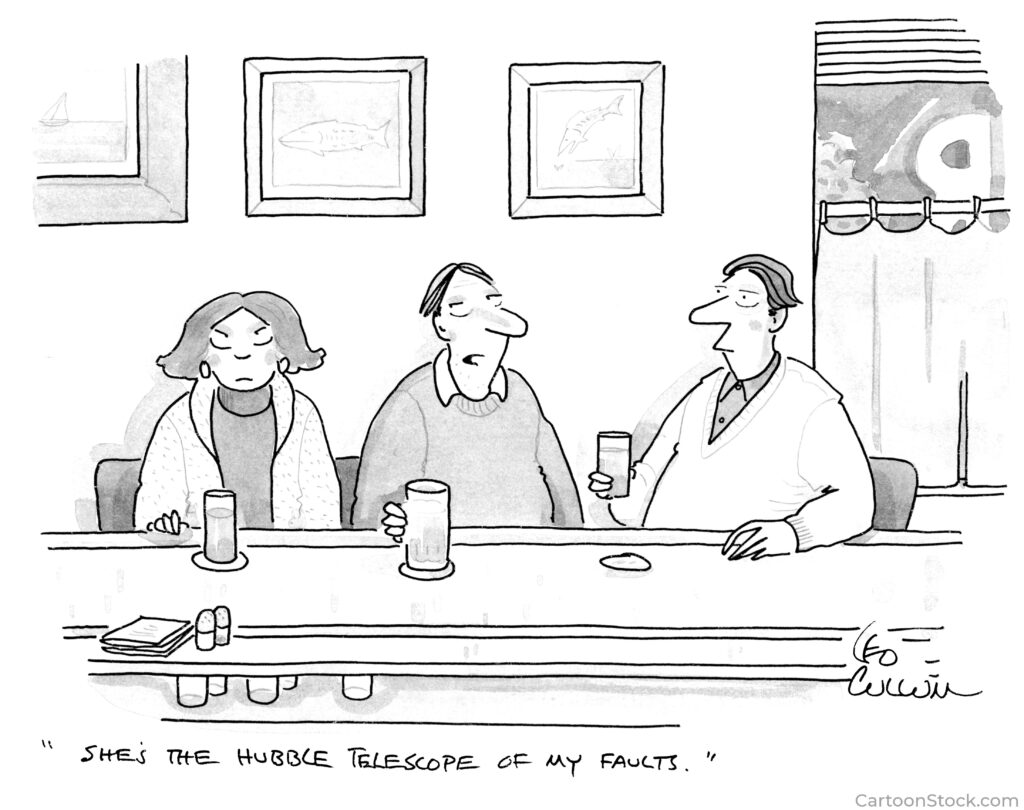
Four years ago I started shopping for a dog. I wasn’t looking for a guard dog or a hunting dog. I just wanted a friend and companion. I considered all breeds, settled on a blonde golden retriever, and bought Buddy.
Buddy is solid white—when running in the snow he disappears. He is a gentle giant—82 pounds of muscle—but so tender that my grandson often sticks his hand in Buddy’s mouth with no consequences. He’s my faithful friend. I usually spend the last 30 minutes of every evening with Buddy and Johnny, just sitting on the couch. He’s everything I want in a dog.
But he has one very frustrating, annoying idiosyncrasy. Sometimes, while walking around the house he gets “stuck” and becomes immobile; he freezes in place and cannot be moved. It takes time and gentle persuasion to get him past the hurdle. Here’s a picture of this happening on the stairs.

But, he’s my beloved dog, so I accept his peculiarities.
We face the same challenge in human relationships. We all have ticks—points of weirdness. When relating to other peoples’ idiosyncrasies, instead of being bothered by them and trying to correct them, perhaps we should just take a deep breath, accept them, and carry on. And hope others will give grace when we’re acting out our eccentricities.
I’m an amateur artist, specializing in pedagogical art—art that teaches a lesson. I recently finished the painting shown below. When I show it to others, people immediately focus on the small black dot in the middle of the white canvas. Some ask if it is a mistake. The painting is an illustration of what I’m talking about in this post. In our relationships we often focus too much on the one or two aspects of a person’s personality that bother us, ignoring the vast amount of goodness they exhibit.

Consider your closest relationships and identify what each person’s “black dot” is. Perhaps you should overlook it (and hope they overlook yours).
British Isles Cruise – September 14-29
If you’re interested in going on the fall Travel with Friends trip, let me know ASAP. There’s only one cabin left. Here’s the brochure.

I will keep this work of art AND the accompanying personal experience regarding helping others in tough times and read it often. Your insights and interpretations of life’s moments are valuable thoughts.
Thanks, Pat, for kind and encouraging words.
Don
I am a veterinarian and Buddy may be experiencing a transient epileptic seizure. I have been retired for several years and I can’t remember the exact terminology for it but the symptoms are suggestive. No convulsions or drooling or spasms –just out of it momentarily.
My husband and I have been on tours with you and Dr. Swindoll and I have high admiration for your accomplishments and zest for life.
Research it or talk to a vet! Dr Barb Kuhns
Barbara, thanks for taking the time to respond and give suggestions about Buddy. I’ll ask our local vet. I thought it was just a idiosyncrocy of Golden Retrievers, but maybe not. Take care, Don
I think this is one of your best articles, and definitely very applicable. Thanks!
Thanks, Mary, for kind and encouraging words. Don